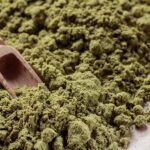
How to Store Kratom to Keep It Fresh Longer
April 3, 2020
Green Horn Kratom Review: A Rare High-Demand Strain
April 17, 2020While many claim that kratom is harmful, what’s exponentially more harmful is a lack of laws or regulations, which would make it more complicated or impossible for adulterated and contaminated kratom to reach buyers.
Sadly, for a long time, such regulations did not exist.
Beginning in 2019, various states across the US started passing and reviewing the Kratom Consumer Protection Act, a set of regulations that vendors must comply with. Yet, many states have pending bills, and many have not initiated it yet.
This is why the American Kratom Association, or the AKA for short, has come up with a variety of initiatives to counter that.
What Is the Good Manufacturing Practice Program?
The Good Manufacturing Practice Program, or the GMP Program, is an initiative started by the American Kratom Association. It is a program that consists of a number of standards known as Good Manufacturing Practice (GMP standards). These are basically regulations to ensure the quality, purity, and integrity of kratom products.
The GMP standards include:
- Manufacturing, labeling, as well as verification standards for any kratom products
- Annual 3rd-party audit to ensure that the vendor complies with the standards
It aims to reduce the number of bad players in the kratom industry who do not have the best interests of buyers in mind.
These bad players are kratom vendors, manufacturers, and distributors who produce adulterated kratom products, do not test kratom in third-party independent laboratories to ensure the quality and purity of kratom, or test it and put contaminated or adulterated kratom for sale anyway.
Bad players also can be vendors who scam buyers by selling fake kratom, luring customers in with free kratom sample scams, or collecting money without shipping any kratom.
Such actions can be damaging not only to kratom buyers but also to the reputation of the herb.
Is the GMP Standards Program Mandatory?
No, the Good Manufacturing Practice Standards Program is completely voluntary. Kratom vendors have the right to voluntarily comply with the GMP program.
How Does a Kratom Vendor Become AKA GMP-Qualified?
For kratom vendors to become GMP Compliant, they need to do the following:
- Submit an application with a $500 initial registration fee.
- Comply with the standards outlined by the AKA.
- Undergo a yearly 3rd-party audit.
- Pay a $1000 annual renewal fee.
These fees are supposed to cover the administrative expenses of the program. The AKA is a non-profit organization, and it operates largely by using donation money, which it uses to lobby the KCPA, target states that have banned kratom, and more.
What to the Good Manufacturing Practice Standards Include?
To become and remain AKA GMP qualified, companies must comply with a list of regulations which include but are not limited to:
- Ensure that personnel goes through a compliance training
- Set and follow procedures that ensure that no contamination passes from sick staff to product or that product does not get contaminated while being handles
- Clean as well as sanitize equipment and facilities
- Establish and follow written procedures for any processes involved in handling kratom
- Label kratom products disclosing all ingredients as well as the quantities of mitragynine and 7-hydroxymitragynine
- Test each batch of kratom produced
- Monitor potential contamination and recall any contaminated product
How Is GMP Program Different from KCPA?
While the GMP program has a long list of points that it requires vendors to comply with, both aim to achieve the same goal – to ensure that buyers only get pure and high-quality kratom. Many of the points overlap. For instance, both require kratom products to be labeled and tested.
The GMP Program is voluntary, whereas the KCPA is not. Once a state passes the Kratom Consumer Protection Act, all vendors within this state must comply. Moreover, failing to comply with the GMP standards program would result in one lo longer being qualified. However, failing to comply with the KCPA can lead to a hefty fine or jail.
Should You Always Choose Vendors Who Are AKA GMP Qualified?
While being AKA GMP Qualified is a bonus point for kratom vendors, you shouldn’t only go for ones that are. Being GMP Qualified is highly beneficial for vendors in states that have no regulations in place. So, it reassures buyers that kratom they buy is pure, fresh, and potent.
However, if a vendor is based in a state that has passed the Kratom Consumer Protection Act, then being AKA GMP qualified is not as necessary as vendors will get access to pure and properly tested and labeled products. State regulations ensure that vendors comply with a large portion of what the GMP standards include. After all, they are both initiatives of the AKA.
Read more about KCPA and GMP.
Is your vendor AKA GMP-qualified or located in a state that has passed the KCPA?






